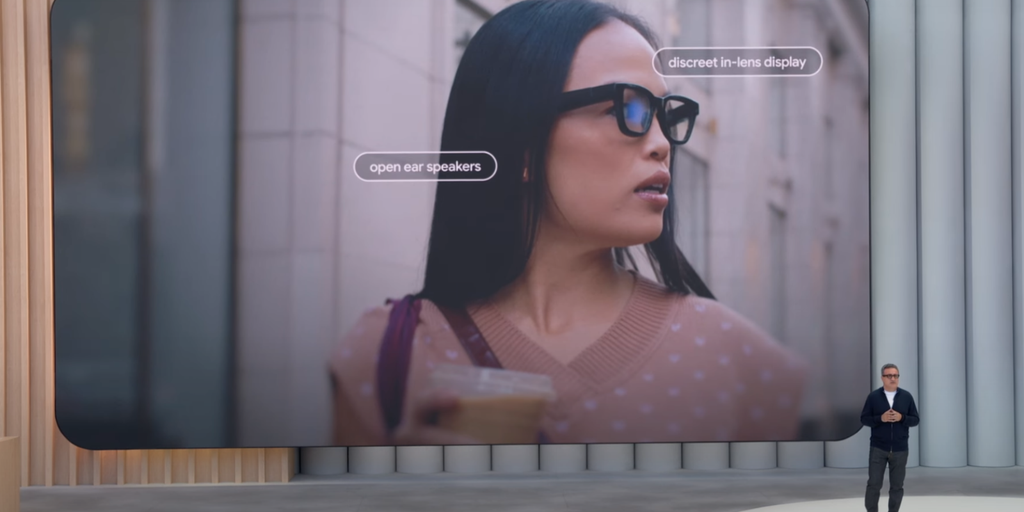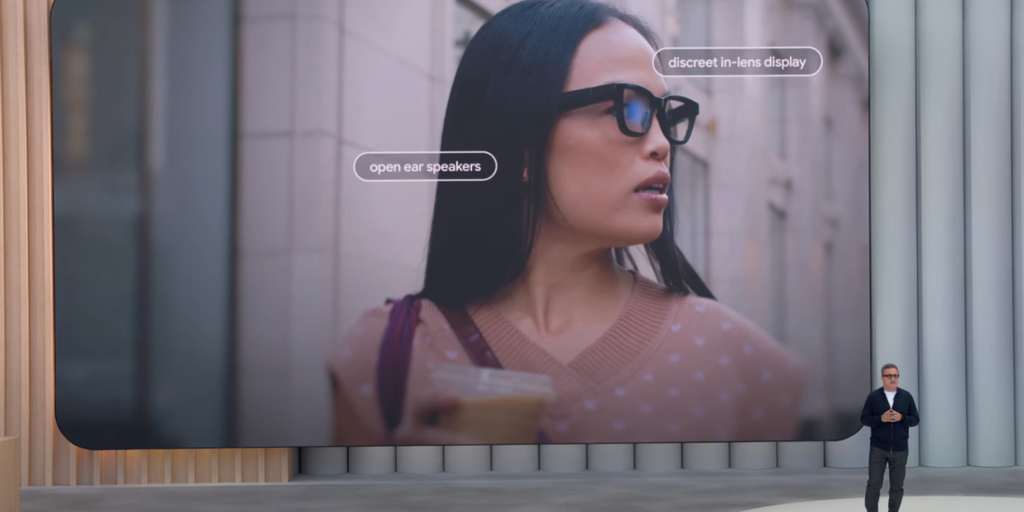
In brief
- At Google I/O, Google demos Android XR glasses with Gemini AI for translation, navigation, media, and real-time help.
- The glasses are in beta testing and Google plans to release them with eyewear brands Gentle Monster, and Warby Parker.
- Google is positioning Android XR to rival Meta’s AI glasses.
Google unveiled Android XR, a new extended reality platform designed to integrate its Gemini AI into wearable devices such as smart glasses and headsets.
During its 2025 I/O developer conference on Tuesday, the tech giant showcased the Android XR glasses, the company’s first eyewear set since the ill-fated Google Glass smart glasses in 2023.
During the presentation, Shahram Izadi, Vice President and General Manager at Android XR, highlighted the need for portability and quick access to information without relying on a phone.
“When you’re on the go, you’ll want lightweight glasses that can give you timely information without reaching for your phone,” he said. “We built Android XR together as one team with Samsung and optimized it for Snapdragon with Qualcomm.”
Google first announced Android XR in December 2024. The reveal arrived eight months after Meta released the latest version of its Ray-Ban Meta AI glasses—a sign of growing competition in the wearable AI space.
Glasses with Android XR are lightweight and designed for all-day wear. They work with your phone so you can be hands-free, stay in the moment with friends and complete your to-do list. pic.twitter.com/CLXGxeQPzs
— Google (@Google) May 20, 2025
Like Meta’s AI glasses, the Android XR glasses include a camera, microphones, and speakers and can connect to an Android device.
Google’s flagship AI, Gemini, provides real-time information, language translation, and an optional in-lens display that shows information when needed.
During the presentation, Google also showed off the Android XR glasses live streaming capabilities, as well as their ability to take photos, receive text messages, and display Google Maps.
Google also demonstrated how Gemini can complement exploration and navigation through immersive experiences.
“With Google Maps in XR, you can teleport anywhere in the world simply by asking Gemini to take you there,” Izadi said. “You can talk with your AI assistant about anything you see and have it pull up videos and websites about what you’re exploring.”
While Google did not announce a release date or price, Izadi said the glasses would be available through partnerships with South Korean eyewear brand Gentle Monster and U.S. brand Warby Parker, adding that a developer platform for Android XR is in development.
“We’re creating the software and reference hardware platform to enable the ecosystem to build great glasses alongside us,” Parker said. “Our glasses prototypes are already being used by trusted testers, and you’ll be able to start developing for glasses later this year.”
Edited by Sebastian Sinclair
Generally Intelligent Newsletter
A weekly AI journey narrated by Gen, a generative AI model.

